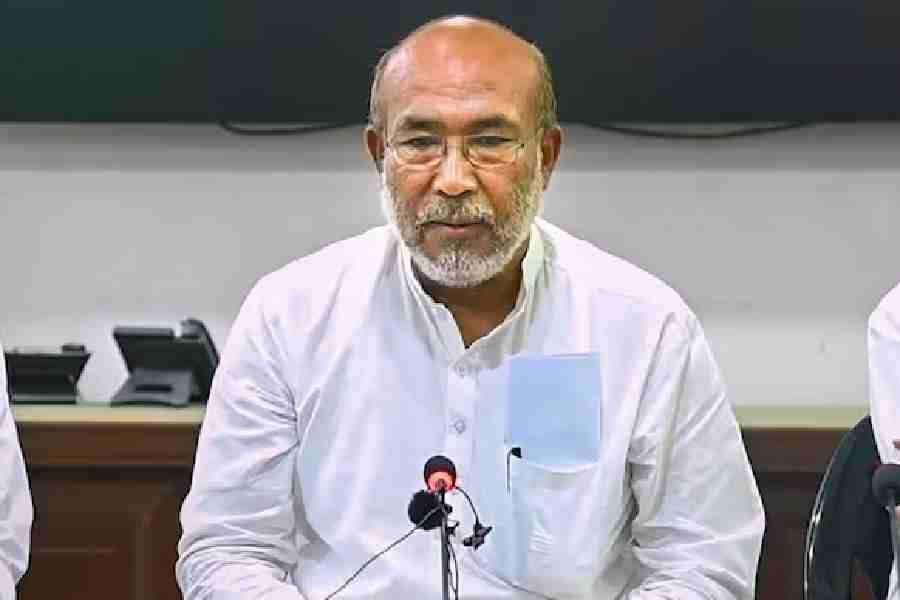Manipur Chief Minister N Biren Singh on Saturday said that his government has urged the Union Home Ministry to cancel the free movement regime along the India-Myanmar border and complete its fencing.
The free movement regime allows people residing close to both sides of the India-Myanmar border to venture 16 km deep into each other's territory without any document.
Addressing reporters here, he said the government will continue to deal with the influx of "illegal immigrants" and stressed the need for complete fencing of the India-Myanmar border.
"The Union Home Ministry has taken steps to fence 60 km of the international border in Manipur," he said.
The CM claimed that the present situation was a result of unplanned policies of the previous governments, and not an immediate aftermath of any recent decision.
"Our government has requested the Union Home Ministry to cancel the free movement regime. Also, security forces have not properly guarded the border. Instead of being deployed at zero point, they were found guarding the border 14-15 km inside Indian territory," he claimed.
"We have to stay focused on real issues in the state, namely dealing with influx of illegal immigrants, taking up welfare activities for internally displaced people and fighting massive poppy cultivation," he said.
More than 175 people have been killed and several hundreds injured since ethnic violence broke out in Manipur on May 3, when a 'Tribal Solidarity March' was organised in the hill districts to protest against the majority Meitei community's demand for Scheduled Tribe status.
Meiteis account for about 53 per cent of Manipur's population and live mostly in the Imphal valley, while tribals, including Nagas and Kukis, constitute 40 per cent and reside mostly in the hill districts.
There are allegations that illegal immigrants from Myanmar were behind the recent violence. Manipur shares around 390-km-long border with Myanmar.
A Meitei organisation has also asserted that the over four-month-long strife is a manifestation of the tension over deforestation, illegal opium poppy cultivation and change in demography in certain areas of the state mainly caused by illegal immigrants from Myanmar.
It is alleged that firearms were supplied to militants in Manipur from Myanmar.
Except for the headline, this story has not been edited by The Telegraph Online staff and has been published from a syndicated feed.











